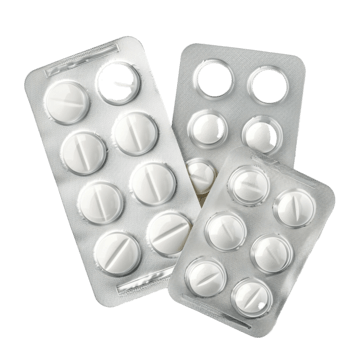Erythromycin

Erythromycin 250mg, 500mg
Erythromycin is an antibiotic used to treat various bacterial infections by inhibiting the growth of bacteria. It is effective against a range of infections, including respiratory tract infections, skin infections, and certain sexually transmitted diseases. Erythromycin works by interfering with the bacteria’s ability to produce proteins essential for their growth, thereby helping the body to eliminate the infection. It is commonly prescribed for patients who are allergic to penicillin or when penicillin is not suitable.
Order NowDescription
Erythromycin is a macrolide antibiotic used to treat various bacterial infections. It works by inhibiting bacterial protein synthesis, thereby stopping the growth of bacteria and helping to eliminate infections.
Uses / Indications
- Bacterial respiratory tract infections (e.g., pneumonia, bronchitis)
- Skin infections, including acne
- Ocular infections caused by susceptible bacteria
- Treatment of rheumatic fever in penicillin-allergic patients
- Whooping cough (pertussis)
- Certain gastrointestinal infections like gastric ulcers caused by Helicobacter pylori (in combination with other medications)
Dosage and Administration
Adults:
250 mg to 500 mg every 6 to 12 hours depending on the severity and type of infection.
Children:
Dosage is typically based on body weight; usually 30 mg/kg/day divided into multiple doses.
Note: Dosage may vary based on medical condition or doctor’s advice.
How It Works (Mechanism of Action)
Erythromycin works by binding to the 50S ribosomal subunit of bacteria, preventing them from producing proteins essential for their growth and reproduction. This action effectively halts bacterial proliferation, allowing the immune system to clear the infection.
Side Effects
Common side effects:
- Nausea
- Vomiting
- Diarrhea
- Stomach cramps
Rare/serious side effects:
- Severe allergic reactions (rash, itching, swelling)
- Liver problems (symptoms may include jaundice)
- Crazy or abnormal heart rhythms (QT prolongation)
Seek medical attention if serious side effects occur.
Precautions / Warnings
- Tell your doctor if you have liver disease, heart problems, or a history of allergic reactions to antibiotics.
- Use caution if combining with other medications that can affect heart rhythm.
- Complete the full course of therapy to reduce the risk of antibiotic resistance.
Drug Interactions
Erythromycin may interact with:
- Anticoagulants (e.g., warfarin)
- Statins (risk of muscle damage)
- Certain antifungal medications
- Medications that affect liver enzymes
Always inform your healthcare provider about any other medications or supplements you’re taking.
Storage Instructions
- Store at room temperature (20°C–25°C / 68°F–77°F)
- Keep away from moisture, heat, and direct light
- Do not freeze liquid forms
- Keep out of reach of children
Missed Dose / Overdose
Missed a dose?
Take it as soon as you remember. If it’s almost time for your next dose, skip the missed one. Do not double up.
Overdose symptoms:
- Severe gastrointestinal distress
- Hearing loss
- Rash
- Severe diarrhea
Contact a poison control center or seek emergency medical help immediately.
Contraindications
- Allergic to erythromycin or other macrolide antibiotics
- History of cholestatic jaundice/hepatic dysfunction associated with prior use
Brand Names / Alternatives
- Erythrocin
- EES (Erythromycin Ethylsuccinate)
- Ilotycin
- Generic name: Erythromycin

